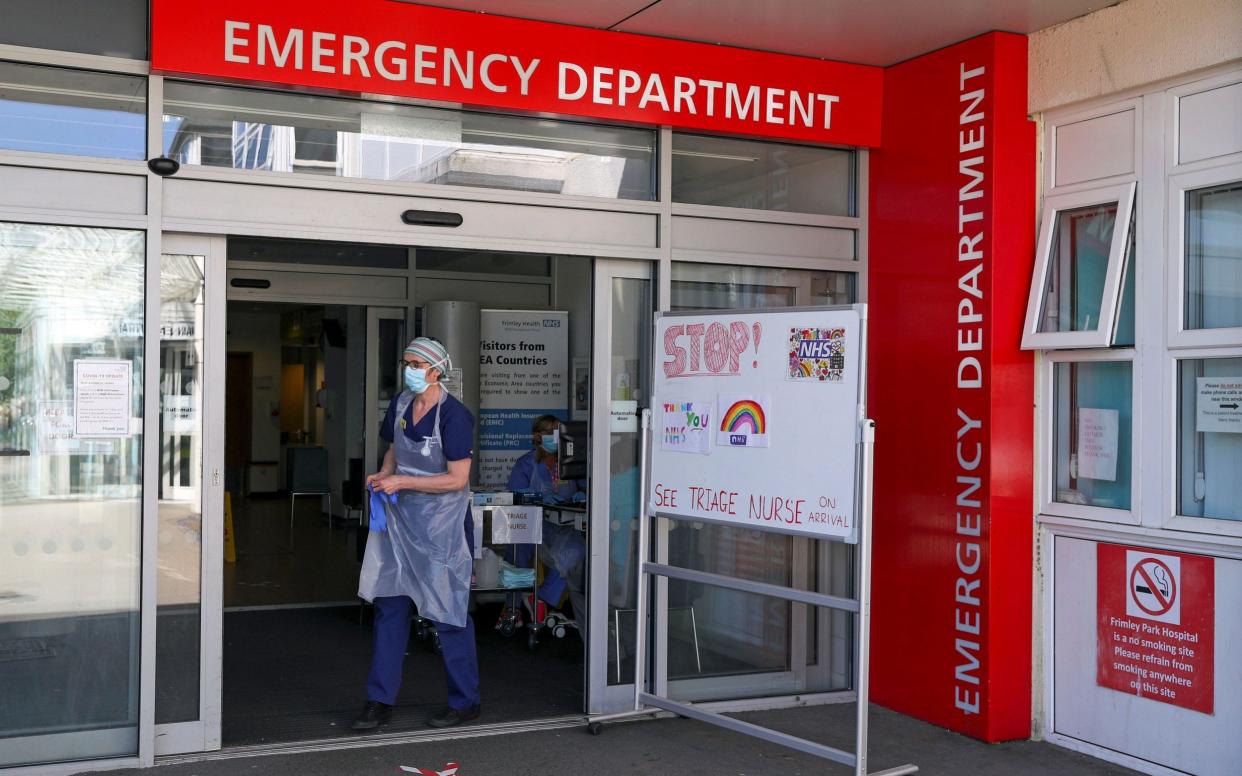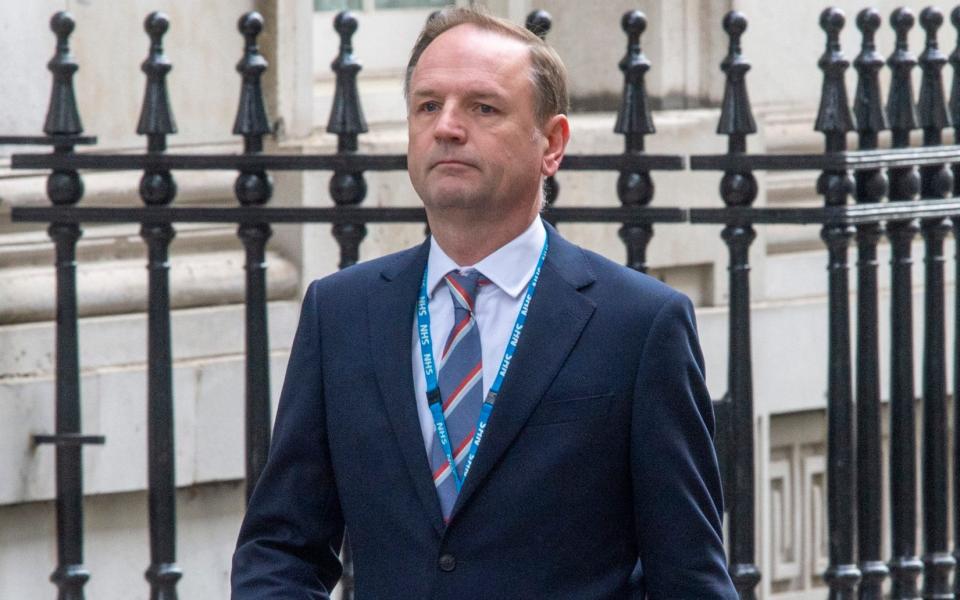NHS must not use coronavirus crisis as excuse to avoid tackling failings, MPs say

The Covid-19 crisis must not be used as an "excuse" by the NHS to avoid addressing a long list of pre-existing failings, a damning report by the Public Accounts Committee has said.
MPs said there should be "zero tolerance" for allowing underlying problems to continue, warning of record waiting lists, worsening A&E performances and long-standing hospital deficits long before the virus pandemic had hit Britain.
The committee also said the Government had no robust plans to ensure that hospitals and care homes have the personal protective equipment (PPE) they need in the event of a second wave of the virus.
Meg Hillier, who chairs the committee, accused the Government of failing to prepare for a pandemic, urging ministers to bring "total focus" to the need to be ready for further outbreaks.
"The Covid-19 crisis must not be used as an excuse not to address long-standing issues, which we have highlighted in our previous reports," the PAC warned, spotlighting a litany of failings.
Before the outbreak, NHS waiting times for treatment were already the worst since 2009-10, with a record 4.23 million on the list by March of last year, the report said.
Hospital trusts have not been in surplus since 2012-13, it noted, with a combined net deficit of £827 million for 2018-19 at trusts and foundation trusts, as well as a £6.5 billion maintenance backlog.
"The NHS had not made the transformation required to meet rising demand before the Covid-19 pandemic," the report said.
"We have reported on the financial and service sustainability of NHS bodies every year since 2011, and have consistently highlighted a range of challenges faced by the NHS, including rising demand, lack of capital investment, tackling trust deficits and workforce issues. The NHS has failed to get a grip on these challenges."
Ms Hillier said: "The pandemic has thrown the deep, long-term underlying problems in NHS capital and financial management into stark relief. There is no room, and must be zero tolerance for, allowing the underlying funding problems to continue."
Although the Government had provided the NHS with "significant" additional funding during the crisis, including writing off £13.4 billion of loans, the committee said underlying problems of financial sustainability had not been addressed.

Sir Simon Stevens, head of the NHS since 2014, has been criticised for the decision to discharge thousands of hospital patients into care homes at the height of the Covid-19 crisis, when there was no routine testing available.
On Sunday, Sir Simon said hospitals were "rigorously" following the instructions they had been given by Public Health England, which had set out priorities for testing based on limited capacity.
MPs have accused the Government of a failure to prepare for a pandemic, and a lack of urgency now about making preparations for a possible second wave. In particular, the committee raised concerns about whether the Government was doing enough to ensure it has sufficient stocks of PPE.
Ms Hillier said: "The Government conducted a large pandemic practice exercise in 2016 but failed to prepare. The previous committee warned on the lack of plans to ensure access to medicines and equipment in the social care sector in the event of a no deal Brexit, but, again, the Government failed to prepare.
"There must be total focus now on where the problems were in procurement and supply in the first wave, and on eradicating them."
The committee said: "We are extremely concerned by the widely reported shortages of personal protective equipment faced by NHS and care workers during the Covid-19 pandemic.
"Although the department says it is committed to building up PPE stocks to meet longer-term demand, we are not convinced that it is treating the matter with sufficient urgency or that the procurement is robust enough. It is absolutely vital that the same problems do not happen again in the event of a second wave."
It called on ministers to come forward with a detailed plan within two months, setting out how they intend to keep the NHS and the care sector fully supplied in future.
A spokesman for the Department of Health and Social Care said: "We will continue to give the NHS whatever it needs and protect it for the future – we have written off £13.4 billion of NHS hospital debt, recently announced another £1.5 billion of capital investment and we will deliver 50,000 more nurses by end of this Parliament."
An NHS spokesman said: "Having successfully responded to the first wave of coronavirus, hospitals are now expanding non-urgent services in a safe way, despite the continuing impact that infection control requirements and social distancing are having on the amount of scheduled care and face-to-face appointments they can deliver."

